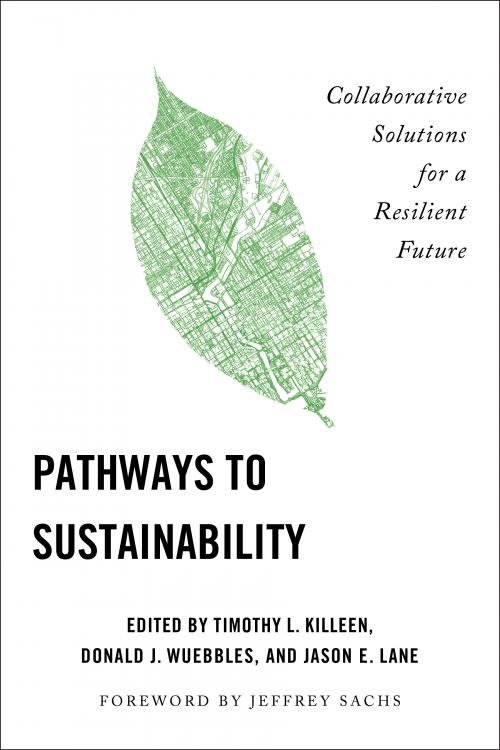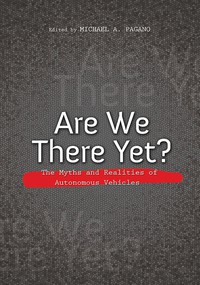
Pathways to Sustainability
Collaborative Solutions for a Resilient Future
How cross-sector engagement can meet today’s global challenges
Paper – $25
978-0-252-08907-7
eBook – $19.95
978-0-252-04856-2
Publication Date
Paperback: 07/08/2025
About the Book
In an era defined by unprecedented environmental challenges and rapid societal change, how can we build a sustainable and resilient future? In this collection, the editors bring together groundbreaking insights and inspiring stories from around the globe, illuminating how innovative partnerships across sectors and borders are driving meaningful progress toward sustainability. Contributors from science, business, non-governmental organizations, and university leadership engage across their areas of expertise to discuss how to apply cutting-edge research toward understanding, mitigating, and adapting to today’s alarming environmental stresses. Throughout, the essayists showcase breakthroughs in sustainability science while providing a blueprint for creating collaborations, expanding networks, and connecting with new markets. Essential reading for sustainability leaders, educators, policymakers, and change-makers everywhere, this volume offers a visionary yet practical roadmap for harnessing the power of collaboration to advance practical solutions necessary to ensure a thriving planet for future generations.Expert and interdisciplinary, Pathways to Sustainability focuses on human capacity building and innovation to explore holistic solutions to climate change, unsustainable resource consumption, and other inevitable challenges of our time.
Contributors: Nicole Arbour, Rebecca T. Barnes, Kyle Blount, Kayla Boparai, Caleb S. Brooks, Benjamin B. Campion, Christopher Castle, William L. Chadderton, Kenneth T. Christensen, Emily M. Clegg, Asher Cohen, Jonathan Coppess, Nathan L. Cummins, John D. Den Uyl, Miranda N. Domico, Francina Dominguez, Patrick J. Doran, Kelvin K. Droegemeier, Pengyue Du, Luis Gomez Echeverri, Brian Fath, John Ferry, Trent W. Ford, Regina Mae Francia, Georgie B. Geraghty, Janet Gooch, Timothy P. Grunloh, Kaiyu Guan, Luiz Gutierrez, Sam S. Haapaniemi, Julian Heiss, Barb Helland, Catherine Hurley, Atul K. Jain, Paul Kearns, Timothy L. Killeen, Rao Kotamarthi, Jason E. Lane, Wendy Larner, John T. Legge, L. Ruby Leung, Peiyuan Li, Leila Loupis, Josephine M. Malonza, Mark Manns, Lia Merminga, Maria J. Molina, David Muchangi Mugo, Meridith F. Muth, Selvaprabu Nadarajah, Cristina Negri, Pratik Patil, Andreas F. Prein, Ziqi Qin, Fany Ramos Quispe, Jonathan Radcliffe, Omer Rana, Dan Reed, Alyssa Rodway, Christine Rovelli, Elena Rovenskaya, Gabriella Pinheiro Servi, Gavin Shaddick, John Shalf, Ashish Sharma, Bjorn Stevens, Tih-Fen Ting, Dennis Todey, John Towns, Andrew J. Tucker, Albert van Jaarsveld, Carolina Veiga, Abhinav Wadhwa, Peter W. Wangai, Melissa Widhalm, Aaron B. Wilson, Molly Woloszyn, Sicheng Wu, Donald J. Wuebbles, and Joel Zavala
About the Author
Timothy L. Killeen is the twentieth president of the University of Illinois System and a leading researcher in geophysics and space sciences. Killeen has more than three decades of experience as an educator, researcher and administrator in public higher education and in leadership positions with national scientific research agencies. Donald J. Wuebbles is the Harry E. Preble Emeritus Professor of Atmospheric Science at the University of Illinois, a special advisor to the President of the University of Illinois, and a Distinguished Scientist with the university’s Discovery Partners Institute. Jason E. Lane is Professor of Higher Education and Special Advisor to the President for Strategic Initiatives at the University of Illinois System. Lane has worked and consulted in more than thirty countries, advising both the Organisation for Economic Co-operation and Development (OECD) and UNESCO.Reviews
“Pathways to Sustainability is a widely sourced set of actionable ideas for creating a more thriving future for people and planet. At a time of polarization and fragmentation, leaders in higher education, research, and policy can use the ideas in this volume to implement meaningful solutions across institutional, intellectual, and international boundaries.”—James Arnott, Aspen Global Change Institute








